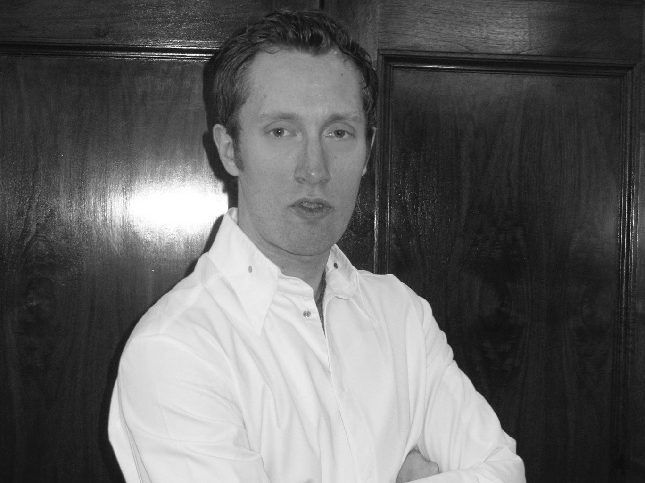by Jozef Arabi
This month’s interview was probably the strangest and most interesting one for me. A few of the previous interviews I have conducted were with chefs I worked for in the past, this month however I am interviewing Raphael Francois, my current Executive Chef at the Connaught Hotel.
Chef Raphael is the man responsible for attaining the coveted 2 Michelin stars for the Helene Darroze restaurant at the Connaught Hotel. He also oversees the entire kitchen operation at the hotel, including The Espelette restaurant, the Connaught and Coburg bars as well as the Fine Dining events. So that’s 3 kitchens and approximately 50 chefs that he has at his command.
Despite his traditional old-school kitchen background, Raphael is an approachable, modern day chef. This is in part due to the fact that he is only 32 years old and sees the old approach of managing kitchens with an ‘iron fist’ as being outdated and counterproductive. This modern approach in the kitchen is also visible in his cooking style; each of his dishes have a fundamentally traditional flavour pairing and cooking technique involved, which he uses to support contemporary dishes.
Over the years I have seen Chef Raphael rise to the challenges he is faced with as the business has continued to grow and the awards have accumulated. He is a talented cook, a respected chef and a bold leader.
Why did you become a chef?
It was largely due to the influence of my family’s love for cooking at home and coming together as a family around the table to share meals together. My great grandmother was at the heart of it all; along with my grandparents they would spend their days off cooking from morning till lunch time, which we would then enjoy together all afternoon till early in the evening.
I was a rebellious young man in my teens and by the age of 16 I was working in a kitchen to pay my own way. I was attracted to working in the kitchen, but it was much harder work 15 years ago. Nonetheless I continued on, studying Hotel and Business Management and working as a chef.
I started my professional career with Michel Theurel, Executive Chef of the Michelin-starred La Maison du Bœuf, in Brussels. It held 3 Michelin Stars for around 20 years and is an institution. I wanted to pursue classic cuisine and with him I learned traditional French cuisine at its best. The experience I gained and the food I learned to cook at this restaurant gave me a solid foundation and allowed me to experience working with a type of cuisine and in a kitchen, the likes of which are becoming more and more rare these days.
What was your first big break?
Well my next big step came after I moved to Paris. With the skills I had learned and the guidance of Michel Theurel I got a job as a Chef De Partie (a chef that manages a section within the kitchen) at the Michelin Starred restaurant at Hotel de Crillon. I was 20 years old at the time which was very young to be in such a position, especially in a highly regarded Parisian Palace like the Crillon.
By 23, I was Sous Chef (next in line to the Head Chef of the kitchen). The Crillon was a seven days-a-week operation, it was very tough work, but everything we did in that kitchen was to the highest standard.
Who has been your biggest influence?
I’m inspired by other chefs and their achievements. Pierre Gagniere, Michel Bras and Thomas Keller are all great chefs with solid experience in the kitchen who have gone beyond just cooking food to becoming creative innovators in this field.
Also, a previous head chef of mine Eric Jean, who I worked with at Chateau de Curzay, taught me so much about having a respect for nature and the ingredients we use. The Chateau was located in the French countryside; it was surrounded by gardens in which we grew a lot of the produce we used in the restaurant. I had previously only lived in cities and always just dealt with suppliers over the phone. Now my perspective was changed, I was dealing with the producers themselves and going to the farms to collect my orders. I started to see the whole picture of the journey which food takes from the earth to the plate. Eating seasonally becomes a way of life rather than a cool trend.
How would you describe your personal cooking style now?
Over the past 10 years there have been many changes in kitchen; modern cooking is more automated. At the Crillon, I took every opportunity I could to develop my own style; during breaks I would stay in the kitchen and trial my own dishes which were a more modern style. I have the classic foundations of cuisine and so I innovate upon this with the new techniques and equipment that continue to be developed. Now my food is very modern but with a strong essence of traditional cooking in each dish.
What is your greatest achievement to date?
The whole journey I have been through, all the experience I have gained and the fact that I’m still only 32 years old and hopefully have a long career ahead of me.
How has the industry changed over the past few years in your opinion?
The industry is constantly changing. Even 10 years ago the industry was very different, especially the type of guests we would cater to – the guests tended to only be the very rich. Today’s restaurants offer more affordable lunch menus and special offers and therefore attract a wider audience. Because of the type of guests we had in the past, nothing was out of the question, whether it was on or off the menu. They were far more demanding than today’s guests in some respects. However we are challenged in a different way now because of the increased number of people eating at fine dining establishments more regularly, they feel more knowledgeable – and they are to a degree. They are continuously comparing chefs and the food served at their restaurants. Now there is a growing challenge in which a chef must conform to certain customer expectations by putting certain ingredients and dishes on the menu, while at the same time trying to differentiate themselves from the rest. Years ago you would travel to foreign countries and try their restaurants for a different experience, now-a-days if you go to most big cities you have a pretty similar selection of food being served at the top places.
Who would you like to cook for?
My friends, my family, but I prefer it when I get to enjoy their cooking!
What inspires you in the kitchen?
The people around me. I love to bring the seed of an idea into the kitchen and then work with my chefs to refine it. I’m also very much inspired by my environment and the places I live. I am flexible when it comes to adapting to new situations and places, which I feel translates into my cooking.
How would you describe your management style in the kitchen?
Much more modern than what I experienced when I first started out in this industry. The future is in good HR practices. Kitchen staff don’t want to work the long hours they used to, their mentality has changed over time and today it is tough finding good staff. As the head chef you have to be a good leader, mentor and trainer. You have to adapt your kitchen to whatever circumstances you are in and make sure you have a mutual respect with your team members. This is not a popularity contest, but it’s important that as a head chef you lead your team in the right direction and treat people as individuals with respect.
What are the biggest misconceptions about chefs out there?
People have more respect for chefs now than ever, and this is great. However the popularity of celebrity chefs has for many people made the job seem easier than it is. People watch shows in which young unknown chefs win a contest and are given the opportunity to become a head chef. It’s not like that in real life; there is a lot of hard work involved. Some top chefs are more recognized for their celebrity status than their true ability to cook. There are plenty of excellent cooks out there who have worked years under tough conditions and long hours to produce excellent food, but people don’t know their names as they are not in the media frequently.
Have you ever visited the Middle East?
Not yet, but I’m really hoping to at some point in the near future.








